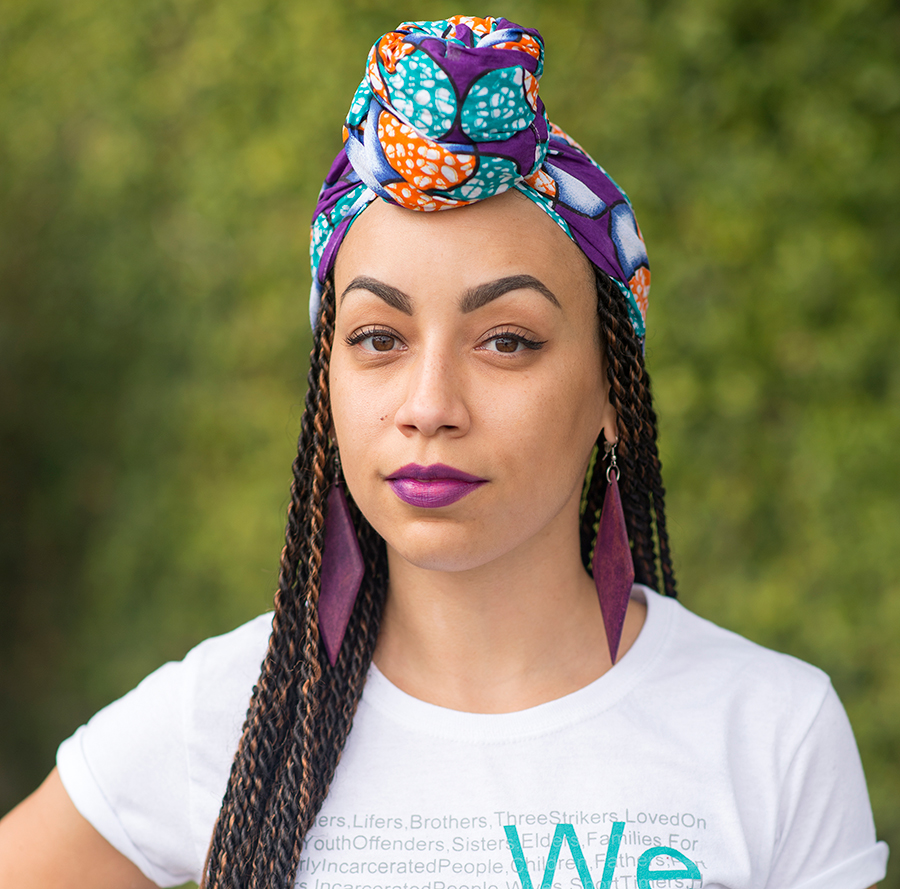Taina Angeli Vargas
Founder, Executive Director

Leading Edge Idea: To create a comprehensive organizing training program that will mobilize people who are currently incarcerated, formerly incarcerated, and their loved ones to win policy reform.
What problem are you working to solve?
The movement to end mass incarceration must be led by the people directly harmed by it. Initiate Justice trains people in prison, formerly incarcerated people and their loved ones to be community organizers and lead policy campaigns aimed at achieving freedom. We understand that directly impacted people are already the experts of our own experiences, but our leadership and skill-building must be meaningfully invested in. We are working to help people uncover the power within that’s already there and tap in to it.
We focus on advocacy training that invests in building up the political power of people impacted by the incarceration system – system designed to make people feel powerless, to make us feel like we don’t have a voice. We want folks who are impacted by incarceration to become community organizers, have a say in state legislation, and understand the ins and outs of the political process. We believe the confines of prison should not limit our power.
What is your vision for your community? For California?
My vision is to end mass incarceration – to bring people home from prison while building a safety system that invests in people and communities. I know we won’t get there unless we are changing policies, narrative, and culture around our existing system and those who are impacted. To get people home from prison and keep our communities safe, we have to intentionally invest in the leadership of people impacted by incarceration to lead policy and advocacy campaigns. It is difficult to navigate the bureaucratic and punitive nature of the prison system to reach people inside, and people with incarcerated loved ones face so much ongoing stress that bringing them into the organizing and policy world can be challenging, but it’s critical that impacted people’s voices are heard and our leadership centered. Our lives are at stake.
How were you inspired to get involved in this work?
My husband is formerly incarcerated and was recently released after being inside for seven years. He was sentenced to 10 years, but thanks to the work that we did around Proposition 57, he was able to earn years off of his sentence. Something that inspires me is knowing that this happened because of policy change. When I would speak to other families who I met in the prison visiting room, I realized that it was so much bigger than me and him; that we should be asking what other laws need to be changed. I wanted to create a mechanism in which the people who are most impacted are the leaders in our own stories and at the forefront of driving change.
What barriers have you faced, or continue to face in achieving your vision of change?
A major hurdle is politics and the fact that politicians are more worried about what their colleagues, prison guard unions, or the District Attorney’s Association will say, than who they are accountable to or who the policy will impact. We want to get to a place where incarcerated people become the force that elected officials listen to.
We work to win policy change through state legislation and the ballot initiative process. Mass incarceration as a system is so embedded that it’s really hard to change things without major funding. We believe you shouldn’t need to be a multi-millionaire to create new legislation, so our hope is to build up momentum and grow enough political power among the hundreds of thousands of people impacted by incarceration in California that we become a formidable force.
How will the Leading Edge Fund fellowship help?
The resources that the Fellowship provides will make it possible to create the infrastructure to help people develop the skills and confidence needed to become policy advocates and change laws. In addition to that, the support that I’m going to receive as an individual—coaching, leadership development, and being able to have the space to invest time to build out this program—is key.
How will the world be different if you are successful?
When we are successful, it will become the norm for politicians to recognize people directly impacted by incarceration as the most powerful stakeholders in public safety reform efforts. Incarcerated people, formerly incarcerated people, and people with incarcerated loved ones will be recognized as experts who know how to navigate the state process as well as any lobbyist, but will offer better solutions because of our lived experiences. People who are directly impacted by mass incarceration will be the leaders in the movement that ends it once and for all.